Most Common Home Seller Questions
As we’ve discussed in past articles, the home buying process comes with many frequently asked questions, but the home selling process is no different. Whether you have never sold a home or have sold half a dozen, there are many questions that can come up. This is due to the fact that selling a home isn’t a process that is practiced regularly by homeowners and also that rules, regulations, and the industry change on a daily basis. Keep reading to have some of the most common questions about selling a home clarified!
When is the best time to sell my home?
Every real estate market is different, therefore, the best time to sell a home will be different from real estate community to community. Since every home seller’s situation is different, you should discuss the timing of your home sale with your local real estate agent.
How is the real estate market now?
A frequently asked question from many home sellers before listing their home for sale is related to the local real estate market. There are many market indicators that a professional realtor should be able to share with you to help explain the condition of the local market. One of the most important indicators on market conditions is average days on the market. The average days on market can indicate to a seller how quickly homes are selling when listed for sale.
Other examples of market condition indicators that your real estate agent will provide before listing a home include market absorption rates, number of closed transactions year-over-year for a given month, average sale prices, and average list price to sale price ratios.
What steps should I take to prepare my home for sale?
There are several things you need to know before listing your home for sale! Not properly preparing a home for sale can put a homeowner at a huge disadvantage.
The expression “You never get a second chance to make a first impression” is absolutely true when it comes to selling a home. When selling a home you must be sure that it presents itself in the best possible light. Making sure clutter is at a minimum, freshly painting rooms, installing new carpeting, or ensuring odors are non-existent are just a handful of things that should be done before listing your home for sale. Read some home staging tips by clicking here!
How much is my home worth?
Of course, every homeowner wants to know how much their home is worth. One of the best perks to owning a home is the ability to make it your own and improve it how you’d like. To get the most accurate estimate for your home’s worth, contact your local real estate company.
What is the difference between a list price and sale price?
The list price is the price a home is currently listed for sale at. The sale price is the price a home is sold at. Your realtor should be able to suggest a list price that ends up being very close to the final sale price.
How do you determine how much my home is worth?
There are a handful of methods that real estate agents use to determine the value of a home. The most common method to determine the value of a home is by completing a comparative market analysis. A comparative market analysis is an in-depth evaluation of recently sold “comparable” homes in the past 6-12 months. A comparative market analysis, also known as a “CMA,” should greatly narrow the sale price range.
A professionally completed CMA will take into account many features of not only a home, but also the local area and neighborhood. Considerations that a professionally completed CMA include, but not limited to:
- Square footage
- Number of bedrooms
- Number of bathrooms
- Upgrades to kitchen
- Window quality
- Roof age
- Lot features
- Location; primary or neighborhood street?
- Style of residence
- Flooring type
What happens if the appraised value comes in too low?
In addition to ensuring there are no safety hazards at a home, the bank appraiser is also making sure that the home value is at least what a buyer and seller agree too. If an appraiser determines the value of the subject property is lower than the agreed purchase amount, there are a couple different scenarios.
Seller Makes Concession. This is the most common result when an appraisal comes in too low. The seller must agree to sell the home for what the appraiser determines as the acceptable value.
Buyer Comes Up With Difference. The buyer must bridge the difference between the purchase price and the appraised value. This scenario is fairly uncommon as many buyer’s find it hard to pay more for a home than their bank appraisal indicates it’s worth.
The Transaction is Canceled. Unfortunately for both the seller and buyer, this is a common result from a property under appraising. If the buyer does not want to bridge the difference and the seller does not want to make the concession and adjust the sale price, the transaction is canceled.
Challenge Appraisal. Challenging an appraisal is not an easy task. It is something that must be done with much care and consideration, otherwise the chances of an appraised value being changed, is slim.
What are seller concessions?
Depending on what type of financing the potential purchaser is obtaining, the option to receive seller concessions may or may not be an option. There are many home buyer’s in the marketplace with great credit scores and solid jobs but are short on the money required to purchase a home. Seller concessions allow a homeowner to contribute a percentage or dollar amount towards a buyer’s closing costs and/or pre-paid items. For example, a buyer who qualifies for an FHA mortgage can receive up to 6% of the purchase price towards their closing costs. This can be a significant amount of money and can be the difference between a buyer being able to afford a home and the seller being able to sell.
What are the common closing expenses for home sellers?
There are expenses that the buyer will have that the seller will not and vice versa. Typical closing expenses for home sellers include the abstract and title search, instrument survey, real estate commissions, and transfer taxes which also are known as revenue stamps.
How does the inspection phase work?
Inspections are a common contingency that buyer’s make their purchase offers subject to. There are different types of inspections and tests that a buyer has the right to perform. In most cases, inspections are at the expense of the buyer. They have a specified number of days to complete the inspections and also a specified number of days to either remove the inspection contingencies or request the seller address findings from the inspections.
Should I be present during showings at my home?
Most commonly the answer here is no. There are many reasons why sellers should not be present during showings. The primary reason why you should not be present at showings of your home is that potential buyer’s can feel uncomfortable talking openly with their realtor about your home. It’s best to be away from your home during showings.
There are many more questions that come to mind during the process of selling your property. Our team at Coldwell Banker Carroll Realty has the most up-to-date information to better serve you no matter if you are in the process of buying or selling property! Our local agents will make sure you are in the know when buying or selling a home with us. We have experienced real estate professionals throughout 30a, Panama City, and Panama City Beach ready to help! Contact any of our Coldwell Banker Carroll Realty offices to get started today.
